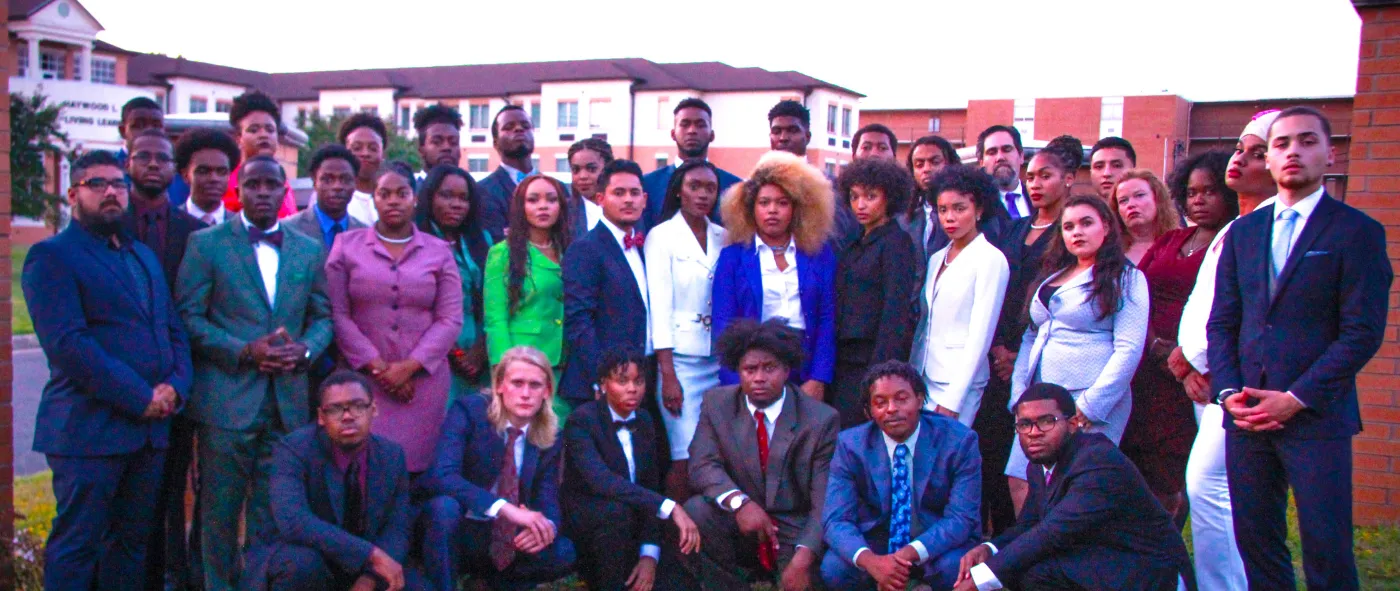Written By Maya A. Jones
Last June, Wiley College announced it would host the nation’s first HBCU National Championship Tournament for 18 colleges with speech and debate teams. As the tournament kicks off in a couple of weeks, some of Wiley’s top competitors said the tournament means much more than just competing with the best.
Wiley sophomore Fortune Onwunali, who will celebrate his 20th birthday Saturday during the tournament, said he learned how to become the best version of himself as a member of the team.
“I became more open with not only myself, but a lot of the people who are around me, because I never had this much exposure to not only what I want to do as far as acting, but exposure to a lot of the things that affect people in the world,” Onwunali said. “With speech and debate, I’m learning so much that not even the news can teach us.”
Onwunali was raised in a Nigerian household, where his parents stressed the importance of education, hoping their children would aspire to be nurses, doctors or engineers. Although those were all promising careers, Onwunali didn’t want any of them. He tried his hand at sports. What Onwunali really loved was acting, but a speech impediment left him with low confidence.
“Growing up, I said words, but I never really spoke,” Onwunali said. “People couldn’t really hear me. I was always bullied and talked about.”
Wiley College, a historically black liberal arts college in Marshall, Texas, is best known for its Great Debaters of the 1930s. Led by poet and English professor Melvin B. Tolson, the Great Debaters were undefeated from 1929 to 1939. The Wiley team competed in the first interracial collegiate debate in the United States against the all-white University of Michigan Law School in 1930. Five years later, the team went on to dethrone the University of Southern California as national collegiate debate champions at a time when people of color struggled to fight racial oppression.
It wasn’t until Onwunali found speech and debate in high school that he began to come out of his shell. The first tournament, Onwunali said, was an eye-opener. It’s where he began to meet people like himself, learned about performing and felt a sense of belonging. It was also where he met Fuad Matti, a student who loved speech and debate and encouraged Onwunali to continue. Matti, who was battling cancer, left Onwunali with words that guide him today.
Matti lost his battle with cancer the next day.
“Since that day, whether I’m sad, upset or not in a good mood, I just keep thinking about that,” Onwunali said. “I never thought I’d be on the Wiley debate team. I honestly thought that once high school was over, I was done with speech. But something in my head just said ‘keep performing.’ ”
As Onwunali continues to honor the legacy of his friend through his performances, his teammate, Louis Mendez, has also found a home with the Wiley debate team.
Before discovering speech and debate, the 20-year-old sophomore said, he was unsure of what he wanted to do with his life. He didn’t plan for college, largely because of his financial situation.
“I had a speech teacher who was also the coach of the debate team. She saw something in me. I don’t know what it was, but she said I should really join the team,” Mendez said. “I went to one of their practices and I literally fell in love just from what I saw, the competitors and the interpretation of literature.”
Mendez immediately tried out and made the team. The team did well and Mendez was discovered by Wiley debate coach Christopher Medina. Since then, Mendez’s self-confidence and skills have skyrocketed.
“Before speech and debate, I really didn’t know who I was as a person, as a man,” Mendez said. “I never had any confidence in my knowledge or in myself. I just took a leap of faith and joined the debate team, and that really opened my mind to things I could apply myself to, things I could do and a whole world of knowledge that was available to me. It’s just a good place to be. Always be around people with the best intentions and who are trying to challenge your thinking.”
Since the announcement of the tournament, the debaters have been preparing for a challenging weekend. The school will also honor actor Denzel Washington for raising awareness about the value of debate education. In 2007, Washington starred in The Great Debaters. After the film’s release, Washington contributed $1 million to help fund the relaunch of Wiley’s debate program.
“Through his support of Wiley College, Mr. Washington has preserved the legacy of the original Great Debaters and their debate coach and mentor, Melvin B. Tolson, while at the same time honoring Tolson’s memory by ensuring that current generations of students can carry forward Tolson’s legacy of excellence,” Wiley College president and CEO Haywood L. Strickland said in a statement. “He has been a staunch supporter of Wiley College and of historically black colleges, and we are forever indebted to him.”
Funding from the Charles Koch Foundation is also helping to support the tournament. During the tournament, students will debate topics such as criminal justice reform, ethical leadership and other social justice issues.

